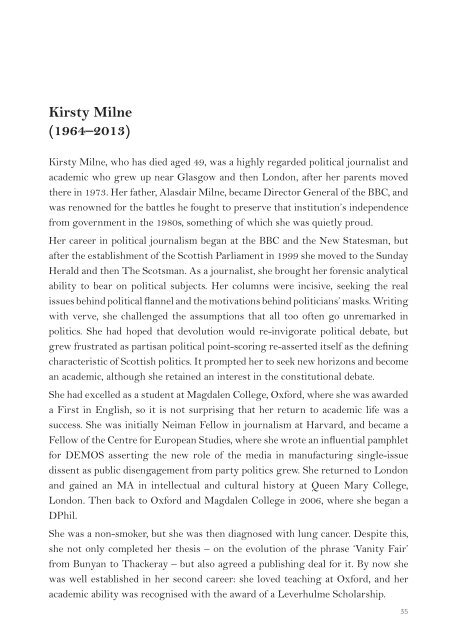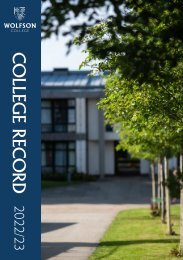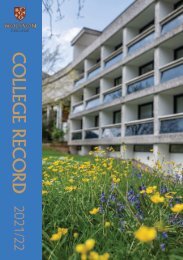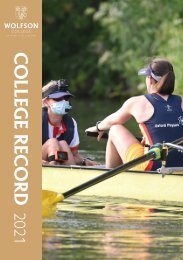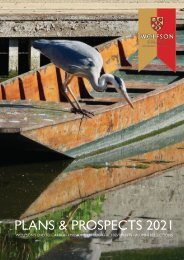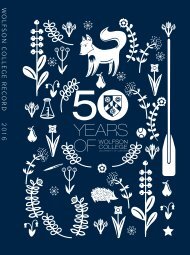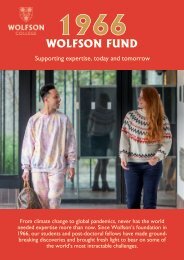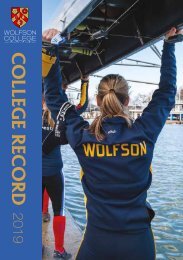You also want an ePaper? Increase the reach of your titles
YUMPU automatically turns print PDFs into web optimized ePapers that Google loves.
Kirsty Milne<br />
(1964–<strong>2013</strong>)<br />
Kirsty Milne, who has died aged 49, was a highly regarded political journalist and<br />
academic who grew up near Glasgow and then London, after her parents moved<br />
there in 1973. Her father, Alasdair Milne, became Director General of the BBC, and<br />
was renowned for the battles he fought to preserve that institution’s independence<br />
from government in the 1980s, something of which she was quietly proud.<br />
Her career in political journalism began at the BBC and the New Statesman, but<br />
after the establishment of the Scottish Parliament in 1999 she moved to the Sunday<br />
Herald and then The Scotsman. As a journalist, she brought her forensic analytical<br />
ability to bear on political subjects. Her columns were incisive, seeking the real<br />
issues behind political flannel and the motivations behind politicians’ masks. Writing<br />
with verve, she challenged the assumptions that all too often go unremarked in<br />
politics. She had hoped that devolution would re-invigorate political debate, but<br />
grew frustrated as partisan political point-scoring re-asserted itself as the defining<br />
characteristic of Scottish politics. It prompted her to seek new horizons and become<br />
an academic, although she retained an interest in the constitutional debate.<br />
She had excelled as a student at Magdalen <strong>College</strong>, Oxford, where she was awarded<br />
a First in English, so it is not surprising that her return to academic life was a<br />
success. She was initially Neiman Fellow in journalism at Harvard, and became a<br />
Fellow of the Centre for European Studies, where she wrote an influential pamphlet<br />
for DEMOS asserting the new role of the media in manufacturing single-issue<br />
dissent as public disengagement from party politics grew. She returned to London<br />
and gained an MA in intellectual and cultural history at Queen Mary <strong>College</strong>,<br />
London. Then back to Oxford and Magdalen <strong>College</strong> in 2006, where she began a<br />
DPhil.<br />
She was a non-smoker, but she was then diagnosed with lung cancer. Despite this,<br />
she not only completed her thesis – on the evolution of the phrase ‘Vanity Fair’<br />
from Bunyan to Thackeray – but also agreed a publishing deal for it. By now she<br />
was well established in her second career: she loved teaching at Oxford, and her<br />
academic ability was recognised with the award of a Leverhulme Scholarship.<br />
35


